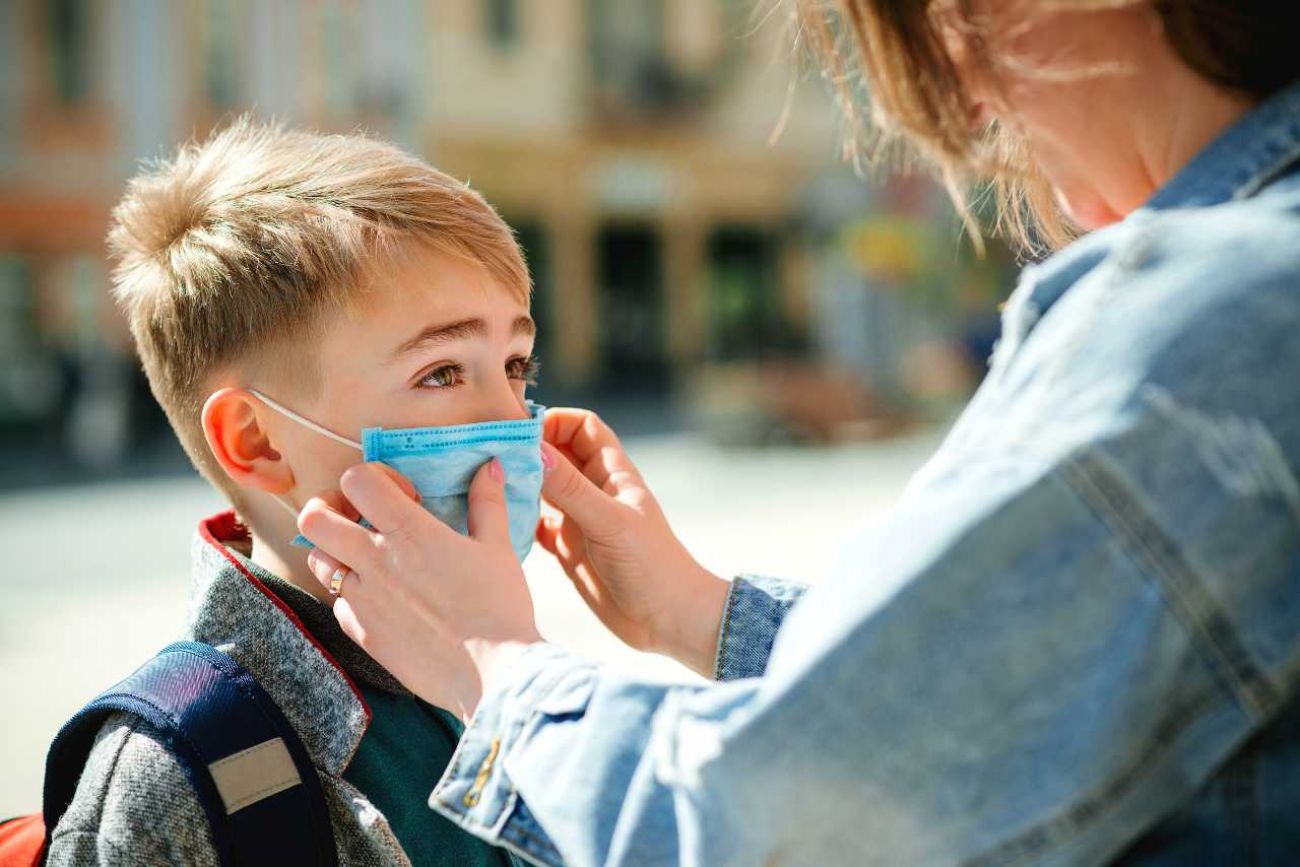Michigan GOP: $1.4B coming for child care if Whitmer drops toddler mask rule

May 20: Whitmer, Michigan GOP make peace, will negotiate billions in federal stimulus
LANSING — Michigan could see one of the most significant investments in child care in years if the Legislature approves a $1.4 billion proposal experts say could transform a beleaguered system.
Similar measures were approved in the House and Senate committees Wednesday. But the legislation from the House has one big caveat: The money would only be authorized when Michigan stops asking facilities to ensure kids ages 2 to 4 years-old wear masks.
That provision is pushed by Republicans, including Appropriations Chair Thomas Albert, R-Lowell. In a statement after the passage of the proposal Wednesday morning, Thomas said it is “not about political posturing.”
Related:
- All schools need in-person classes this fall, U.S. education secretary says
- Child tax credits are expected to start arriving in July. Here’s what to know.
- Michigan Gov. Gretchen Whitmer links easing COVID rules to vaccines
- Mask up, Michigan toddlers! State expands COVID orders to 2-year-olds
- Detroit offers $50 a shot to people who bring residents for COVID vaccines
- As Michigan tamps down COVID, three new virus variants appear
“This is about doing what’s right for our kids. I have serious concerns about the consequences of this impractical, ineffective order,” Albert said. “Michigan isn’t solving any problems with this particular mask order – it’s actually creating problems for young kids and their families.”
Albert said he’s worried about the potential impact of masks on toddlers and preschoolers from the April 19 order by the administration of Democratic Gov. Gretchen Whitmer.
The order requires child care providers to “make a good faith effort .. to ensure that children aged 2 to 4 years wear a mask when participating in gatherings.” The order mandates all children 5 years and older wear a mask when participating in gatherings.
The provision is the latest in a months-long standoff between Republicans and Whitmer over her COVID orders. Republicans have withheld some of the $5 billion in pandemic bailout funds the state has received from Washington D.C. in hopes of changing her policies.
The latest round of COVID appropriations, approved by Albert’s House committee on Wednesday, also includes $743 million for food assistance, $481 million for rent and utility assistance, and $400 million to help get people off unemployment through $1,000 individual grants.
Rep. Shri Thanedar, D-Detroit, told Bridge Michigan he opposes the bill because he believes no funding should be tied to masks.
“Science should dictate, not politics,” Thanedar said. “While I oppose mandatory mask requirements for children, I see nothing wrong with encouragement to increase precaution.”
Child care advocates say the $1.4 billion is sorely needed. According to the Michigan League for Public Policy, about 65 percent of the child care providers in the state have reopened after closing amid the pandemic, “but many fear that they will be unable to remain open without additional and ongoing support.”
According to the Economic Policy Institute, the average yearly cost of infant care in Michigan is $10,860, or $905 a month. That means that a parent on a minimum wage salary would have to work full time for 28 weeks to pay for one infant’s care.
Specifics for how the $1.4 billion would be spent haven’t been worked out, but proposals include hazard pay for workers or more subsidies for working parents.
Whitmer didn’t directly respond to questions about the House proposal. In a statement to Bridge Michigan, her office said the governor was glad to see some initial proposals start to make their way through the Legislature.
“As we look to get back to normal, we have a once-in-a-generation opportunity to make record investments to ensure Michigan families, small businesses, school districts, and our economy can emerge from the pandemic in a better and stronger position,” the statement said.
The Senate Appropriations on Wednesday also approved similar budget measures. The money used for these proposals include the remaining federal funds received in December.
But the Senate version doesn’t include the mask provision.
Sen. Jim Stamas, R-Midland, said he didn’t think tying funding to Whitmer’s mask order is necessary now.
“We’ll look as we move forward with the process,” Stamas, the chair of the Senate Appropriations Committee, told Bridge Michigan. “But I’m hopeful this (mask) requirement is only temporary.”
The Senate’s budget bills approved Wednesday constitute about $4.4 billion. It is meant to be invested in food assistance programs, mental health and substance abuse treatments, FEMA-approved payments for emergency-related assistance, and hospitals.
Whitmer warned that the federal government still must provide guidance for how states can spend COVID-19 relief assistance before Michigan allocates the money.
“Once we receive additional guidance, our top priority will be getting these resources into the hands of Michiganders as quickly as possible,” Whitmer’s office said.
“And we look forward to working together with the Legislature to negotiate a budget that works for every Michigander.”
See what new members are saying about why they donated to Bridge Michigan:
- “In order for this information to be accurate and unbiased it must be underwritten by its readers, not by special interests.” - Larry S.
- “Not many other media sources report on the topics Bridge does.” - Susan B.
- “Your journalism is outstanding and rare these days.” - Mark S.
If you want to ensure the future of nonpartisan, nonprofit Michigan journalism, please become a member today. You, too, will be asked why you donated and maybe we'll feature your quote next time!




